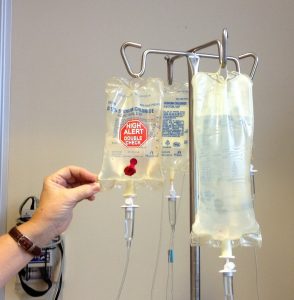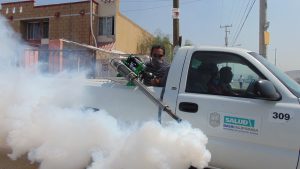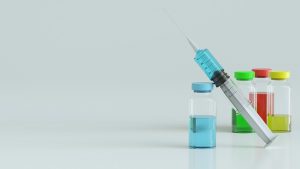Dengue fever is a disease most prevalent in South Asia, Central and South America and the Caribbean.
It is caused by a virus called as the dengue virus which has five subtypes (serotypes) named as DEN-1 to DEN-5.
Infection from one serotype confers lifelong immunity to that serotype. A person (previously infected with one serotype), when infected by another serotype, has a more dangerous course.

Dengue virus transmission:
Dengue fever is spread by mosquitoes that carry dengue viruses. These mosquitoes called Aedes Aegypti or Tiger fly, are different from the ones responsible for transmitting malaria.
People who live in areas where these mosquitoes are common to have the highest risk of infection. These mosquitoes love to live in stagnant water.
Even as little as one teaspoon of water is enough for these mosquitoes to live and hatch eggs. Aedes aegypti mosquitoes bite at dusk and dawn time specifically.

What are the symptoms of dengue fever?
Symptoms usually happen 4 to 7 days after a bite from a mosquito that carries the dengue virus. But they can happen up to 2 weeks later. Symptoms usually last 5 to 7 days.
Dengue fever symptoms are different for each person. They can be mild or severe. When a person is infected for the first time, the symptoms may be mild.
The first infection can be missed as it has a similar presentation to the usual viral infections. Patients can also present with the classic dengue fever called “Bone Breaking Fever”.
Symptoms of classic dengue virus infection include:
- Fever
- Headache
- Pain behind the eyes
- Joint and muscle pain
- Feeling tired, sometimes for days to weeks
- Rash – This can be flat or have small bumps. It might be itchy. A rash is more common in people who have not been infected with a dengue virus before.
- Stomach problems, such as nausea, vomiting, and diarrhea
- Cough, sore throat and stuffy nose – The throat might look red.
- Small purple spots on the skin or bowel movements that look black
- Red eyes
- Swollen glands
Children and younger people often have less severe symptoms.
Dengue Hemorrhagic Fever:
People who had dengue fever in the past and get infected with a different dengue virus have the highest risk of severe symptoms. This is called as dengue hemorrhagic fever. Patients with dengue hemorrhagic fever may progress to dengue shock syndrome.
The primary mechanism of dengue hemorrhagic fever is plasma leakage from the blood vessels into extravascular tissues.
This leads to a relative increase in red blood cells in the vessels owing to reduced plasma volume, also called capillary leak syndrome.
The term dengue hemorrhagic fever is a misnomer, since patients may or may not bleed.
- Have bad belly pain more marked in the right upper quadrant of the abdomen.
- Get bruises without bumping into anything – The person might also have small purple spots on the skin.
- Vomit blood
- Get nosebleeds
- Excessive bleeding during menstrual cycles in females
- Have black bowel movements
- The pulse pressure, calculated as systolic minus diastolic, is low.
- The doctor or nurse might perform a test, called as the tourniquet test. This is done by elevating the blood pressure cuff midway between the systolic and diastolic for 3-5 minutes. The Appearance of 20 or more petechiae or small red spots per square inch area of the arm is labeled as positive. This is a non-specific test and may be positive in other conditions where platelets are low or dysfunctional.
What is Dengue shock syndrome:
Dengue shock syndrome is a medical emergency. It usually follows patients with dengue hemorrhagic fever. All patients need hospitalization and aggressive fluid resuscitation.
The Expanded Dengue Syndrome:
Patients with dengue fever might also present with involvement of other organs and systems. Common diseases with which patients might present include
- Dengue hepatitis and liver failure
- Dengue encephalitis (infection of the brain)
- Transverse myelitis and Guillain-barre syndrome (neurological diseases presenting with limb weakness)
- Renal failure
- Myocarditis (heart involvement)
How to diagnose Dengue Fever?
A doctor might be able to tell if you have dengue fever by doing an exam and learning about the symptoms. He or she can also do blood tests. These tests can find the dengue viruses.
It sometimes takes 2 different tests to tell for sure.
Most commonly used tests are dengue serology which includes IgM and IgG antibodies. IgM antibodies when positive is indicative of a recent infection.
IgG antibodies are indicative of a past infection. Patients who have dengue fever for the second or third time may have both IgM and IgG positive in their blood.
These antibodies are usually not detectable during the first three to five days of the onset of symptoms. Therefore a negative serology during the first 3-5 days does not mean that dengue fever has been ruled out.
To diagnose dengue fever in the first 3-5 days, NS1 Ag should be performed. NS1Ag is a protein also called as non-structural antigen 1. There are seven non-structural antigens of the dengue virus.

How is dengue infection treated?
There is no treatment for the virus that causes dengue fever, but doctors can treat the symptoms. Very sick people can be treated in the hospital.
Management of dengue fever patients depends on the severity of the illness.
General management of all patients with dengue fever:
- This is the most important step in management. Patients should be told that only a minority of patients can develop complications and that the disease is self-limiting.
Most patients are afebrile within seven days. Fever lasting more than ten days of the onset of symptoms is least likely to be due to dengue fever.
Patients should be advised bed rest. Oral rehydration should be encouraged. For pain and fever, patients should take paracetamol.
Non-steroidal anti-inflammatory drugs like ibuprofen, Ponstan (mefenamic acid), naproxen and diclofenac acid should be avoided.
Intravenous fluids in Dengue hemorrhagic fever
- Patients with dengue hemorrhagic fever should be monitored for plasma leakage. The duration of plasma leakage is usually 48 hours.
Plasma leakage usually starts when the fever starts subsiding. This is called the critical period.
This is the time when patients might need intravenous fluids especially dextran, albumin, and other colloids.
After 48 hours, plasma starts re-entering the vessels and patients might develop shortness of breath due to fluid overload.
This is the recovery period. Intravenous fluids at this time should be gradually tapered off and patients are switched to oral fluids.
Blood and Blood Products
- Platelets transfusion: platelets are the smallest cells responsible for clotting. Patients with dengue fever or dengue hemorrhagic fever might have dangerously low platelets counts. Platelet transfusion is only indicated when the patient is bleeding.
Blood transfusion: patients who are actively bleeding and dropping hemoglobin needs red cell concentrate. Falling hemoglobin is especially dangerous in the extremes of ages and pregnant patients. If the patient’s hemoglobin is falling and there is no obvious source of blood loss, ultrasound abdomen, and stool for occult blood should be checked.
Patients at increased risk of complications and Death.
These people include:
- Pregnant women
- Babies
- Older people
- People who are obese
- People who have diabetes, kidney failure, or certain blood diseases
These people might need to go to the hospital if they get dengue fever. Doctors can watch for severe symptoms and treat them if they happen.
People who live alone or far from the doctor’s office or hospital might also need to stay in the hospital. People who are not as sick can usually rest at home.

How Can Dengue fever be prevented?
The best way to prevent fever is to avoid the mosquitoes that carry it. Dengue infection prevention is similar to prevention of malarial infection.
Not all countries where dengue fever is common control mosquitoes well. However, you can lower your chances of getting dengue fever if you live or travel there.
You can follow the following steps:
- Stay inside during the day, when the mosquitoes that carry dengue fever are most effective. Buildings with screens and air conditioning are safest.
- Wear shoes, long-sleeved shirts, long pants, and a hat when you go outside.
- Wear bug spray or cream that contains DEET or a chemical called picaridin. Check the label to make sure. furthermore, do not use DEET on babies younger than 2 months.
- On your clothes and gear, use bug repellants that have a chemical called permethrin.
- Drain any standing water near your homes, such as wading pools, buckets, and potted plants with saucers. Mosquitoes breed in standing water.

Dengue Virus Vaccine …
The first dengue vaccine was launched in Mexico in 2015. Dengvaxia is a recombinant, live, tetravalent vaccine that has been evaluated as a three-dose series on 0, 6 and 12 months schedule.
It has been registered for use in patients aged 9 to 45 years of age in dengue endemic areas.